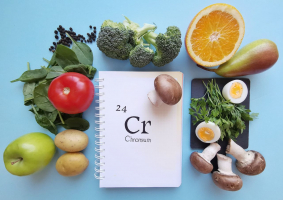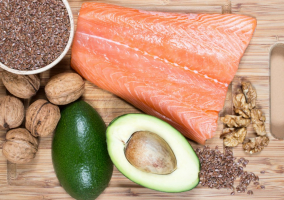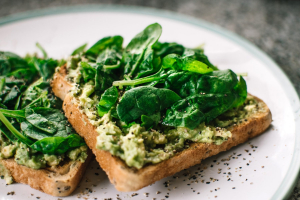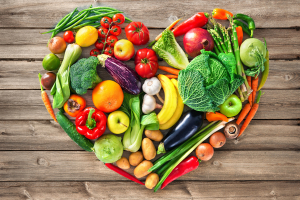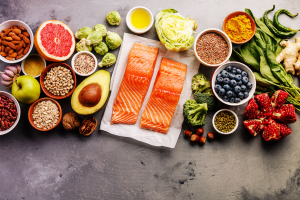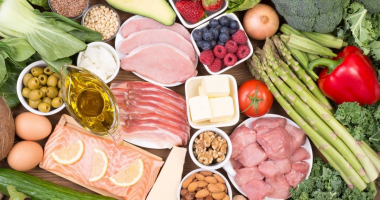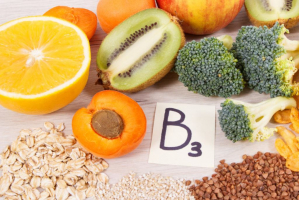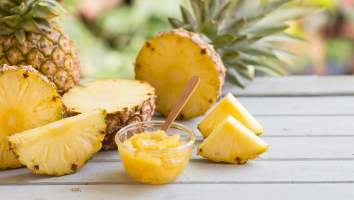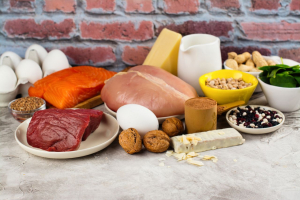Top 12 Best Foods That Contain Natural Digestive Enzymes
Your digestive system is made up of many organs that function together. These organs break down the food and liquids you consume into simpler forms like ... read more...proteins, carbohydrates, lipids, and vitamins. Digestive enzymes are required for this process because they break down substances such as lipids, proteins, and carbohydrates into smaller molecules that can be absorbed more readily. Without enough digestive enzymes, the body is unable to effectively digest food particles, which can lead to food intolerance. Digestive enzymes are available as supplements or naturally in meals. Here are the best foods high in natural digestive enzymes.
-
Pineapples are a tasty tropical fruit that is high in digestive enzymes. Pineapples, in particular, contain a kind of digestive enzyme known as bromelain. These enzymes are proteases, which degrade protein into its constituents, including amino acids. This promotes protein digestion and absorption. Bromelain powder can be purchased to help tenderize tough foods.
It's also commonly accessible as a health supplement for folks who have trouble digesting proteins. A study of persons with pancreatic insufficiency, a disease in which the pancreas does not produce enough digestive enzymes, discovered that combining bromelain with a pancreatic enzyme supplement helped digestion more than the enzyme supplement alone.
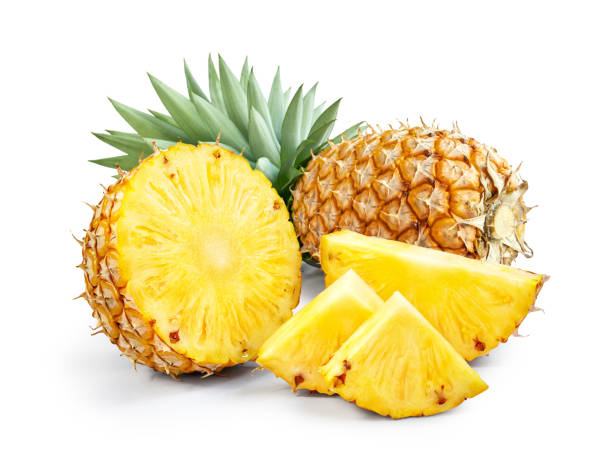
Pineapple 
Pineapple -
Another tropical fruit high in digestive enzymes is papaya or pawpaw. Papayas, like pineapples, contain proteases, which aid in protein digestion. They do, however, contain a distinct type of protease known as papain. Papain is also sold as a meat tenderizer and digestive aid.
Taking a papaya-based mixture may help relieve IBS digestive symptoms such as constipation and bloating, according to research. If you wish to consume papayas, make sure they are ripe and uncooked because the heat might damage their digestive enzymes. Unripe or semi-ripe papayas can also be risky for pregnant women since they might cause contractions. If you wish to consume papayas, make sure they are ripe and uncooked because the heat might damage their digestive enzymes. Unripe or semi-ripe papayas can also be risky for pregnant women since they might cause contractions.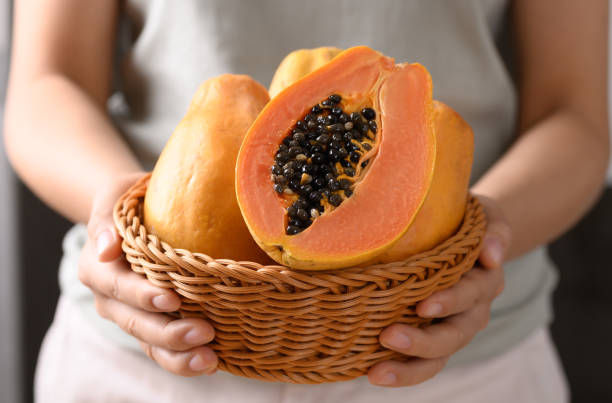
Papaya 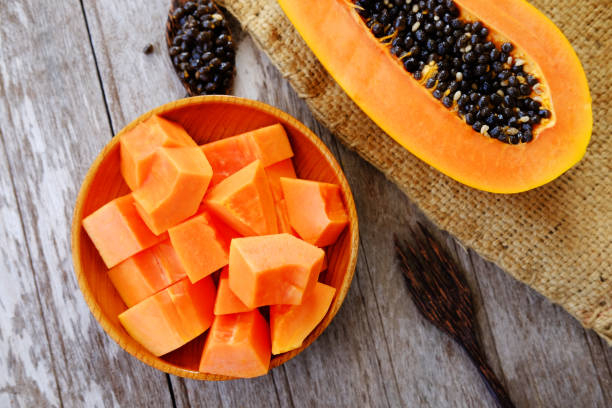
Papaya -
Mangoes are a refreshing tropical fruit that is popular during the summer. They include amylases, which are digestive enzymes that break down carbohydrates from starch (a complex carb) into sugars like glucose and maltose. Mango amylase enzymes grow increasingly active when the fruit ripens. Mangoes get sweeter as they mature because of this.
The pancreas and salivary glands both produce amylase enzymes. They aid in the breakdown of carbohydrates, allowing them to be readily absorbed by the body. Because amylase enzymes in saliva assist to break down carbohydrates for faster digestion and absorption, it's typically suggested to chew meals extensively before swallowing.
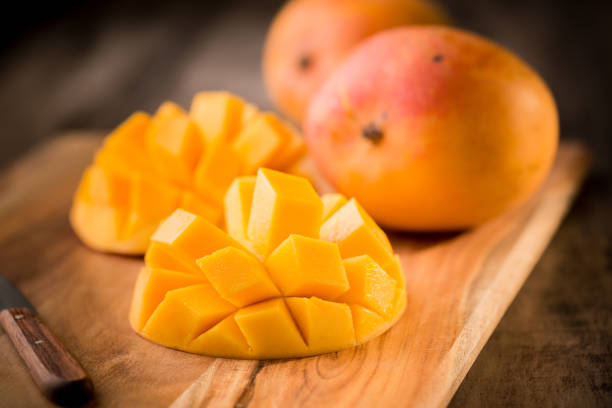
Mango 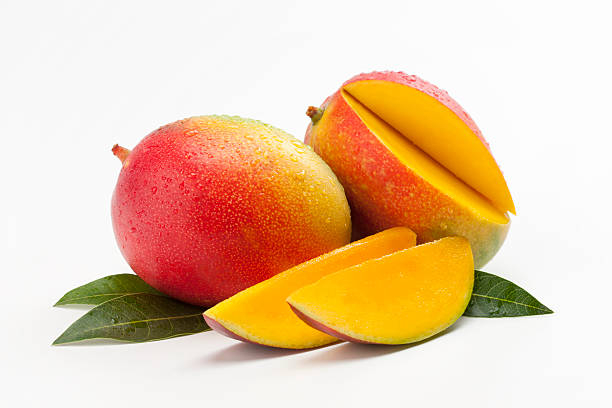
Mango -
Each year, Americans are projected to eat approximately 400 million pounds of honey. This delectable beverage has several helpful ingredients, including digestive enzymes. The enzymes contained in honey, particularly raw honey, are as follows:
- Diastases: Break down starch into maltose
- Amylases: Break down starch into sugars like glucose and maltose
- Invertases: Break down sucrose, a type of sugar, into glucose and fructose
- Proteases: Break down proteins into amino acids
If you want to get the digestive health advantages of honey, make sure you buy raw honey. Heat is frequently used in the processing of honey, and extreme heat can disrupt digestive enzymes.

Honey 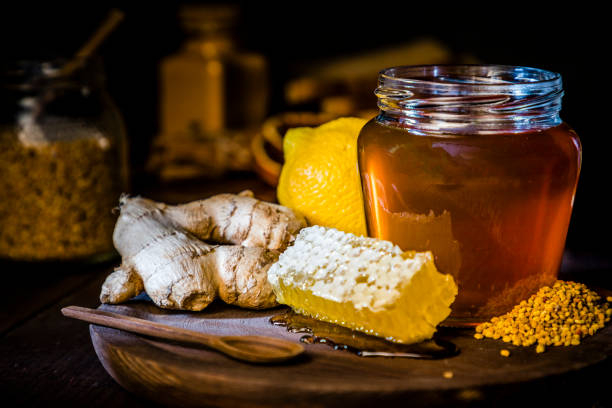
Honey -
Another fruit that includes natural digestive enzymes is the banana. They include amylases and glucosidases, two enzyme families that break down complex carbohydrates such as starch into smaller, more readily absorbed sugars. As bananas ripen, these enzymes, like mangoes, break down starch into sugars. Ripe yellow bananas are significantly sweeter than unripe green bananas because of this. In addition to their enzyme content, bananas are a good source of dietary fiber, which may help with digestion. A medium banana (118 g) has 3.1 g of fiber.
Two-month research involving 34 women investigated the relationship between consuming bananas and the formation of good gut flora. Women who ate two bananas each day had a little, non-significant increase in beneficial gut flora. They did, however, have substantially less bloating.
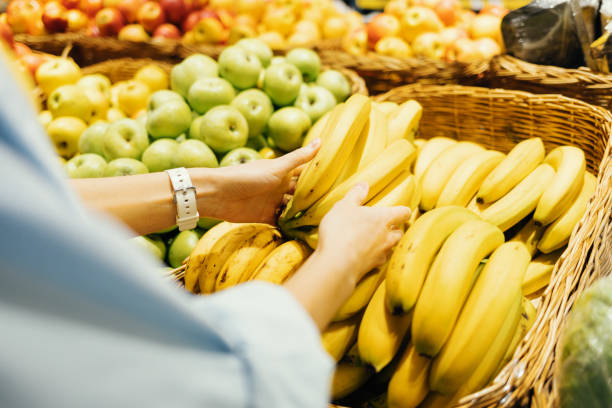
Bananas 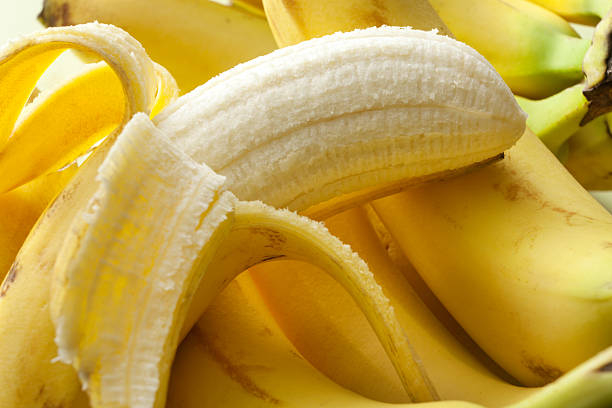
Bananas -
Avocados are unlike other fruits in that they are heavy in healthful fats and low in sugar. Lipase, a digesting enzyme, is found in them. This enzyme aids in the breakdown of fat molecules into smaller molecules that are simpler for the body to absorb, such as fatty acids and glycerol.
Lipase is also produced by your pancreas, therefore you do not need to consume it. Taking a lipase pill, on the other hand, can aid with digestion, especially after a high-fat meal. Other enzymes found in avocados include polyphenol oxidase. In the presence of oxygen, this enzyme is responsible for turning green avocados brown.
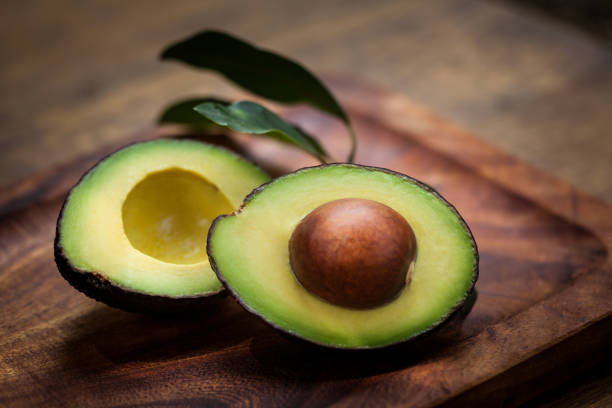
Avocados 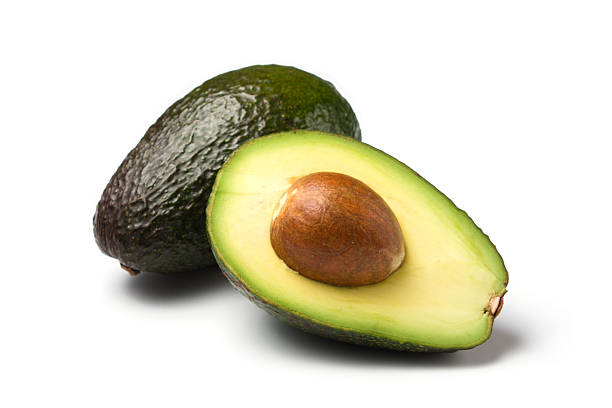
Avocados -
Kefir is a fermented milk beverage that is popular among those interested in natural health. It's prepared by combining milk and kefir "grains". These "grains" are actually cauliflower-like cultures of yeast, lactic acid bacteria, and acetic acid bacteria. Bacteria consume the natural sugars in milk and convert them to organic acids and carbon dioxide during fermentation.
This procedure not only produces circumstances for bacteria to proliferate, but it also contributes nutrients, enzymes, and other useful chemicals. Lipase, proteases, and lactase are among the digestive enzymes found in kefir. Lactase is an enzyme that assists in the digestion of lactose, a sugar found in milk that is frequently poorly digested. Kefir enhanced lactose digestion in persons with lactose intolerance, according to one research.
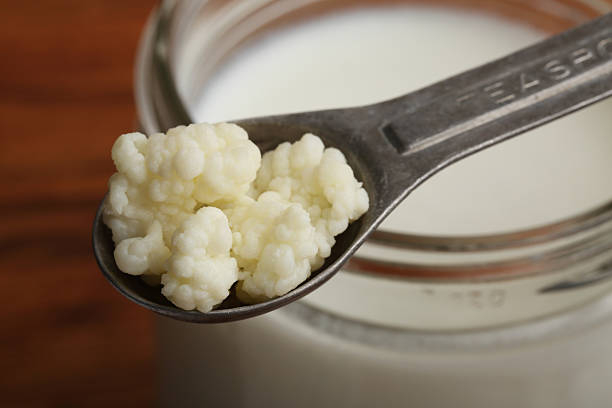
Kefir 
Kefir -
Sauerkraut is fermented cabbage with a unique sour flavor. The fermenting process also adds digestive enzymes, making sauerkraut an excellent source of digestive enzymes. Sauerkraut, in addition to possessing digestive enzymes, is considered a probiotic meal because it includes beneficial gut bacteria that improve your digestive health and immunity.
Many studies have shown that taking probiotics can help relieve digestive symptoms such as bloating, gas, constipation, diarrhea, and stomach discomfort in both healthy persons and those with IBS, Crohn's disease, and ulcerative colitis. Simply consume raw or unpasteurized sauerkraut rather than cooked sauerkraut. High temperatures may cause its digestive enzymes to deactivate.

Sauerkraut 
Sauerkraut -
Kimchi is a spicy Korean vegetable fermented side dish. The fermentation process, like that of sauerkraut and kefir, introduces good microorganisms that give nutrients, enzymes, and other advantages. Kimchi includes Bacillus species bacteria that create proteases, lipases, and amylases. These enzymes break down proteins, lipids, and carbohydrates, in that order.
Kimchi has been connected to a variety of health advantages beyond digestion. It may be especially helpful in lowering cholesterol and other risk factors for heart disease. In a study of 100 young, healthy people, researchers discovered that those who ate the most kimchi had the largest drop in total blood cholesterol. A high total cholesterol level is a risk factor for heart disease.

Kimchi 
Kimchi -
Miso is a common spice in Japanese cooking. Soybeans are fermented with salt and koji, a kind of fungus. Koji contains digestive enzymes such as lactases, lipases, proteases, and amylases. That is one reason why miso may help digestion and absorption.
Indeed, studies have shown that the bacteria in miso help alleviate symptoms associated with digestive issues such as irritable bowel syndrome (IBD). Furthermore, fermenting soybeans improves their nutritional quality by lowering antinutrient content. Antinutrients are naturally occurring substances in meals that can obstruct nutrient absorption by binding to them.

Miso 
Miso -
The kiwifruit is a berry that is commonly used to aid digestion. It's high in digestive enzymes, including actinidain, a protease. This enzyme aids in protein digestion and is commercially utilized to tenderize tough foods. Furthermore, kiwifruit has a variety of enzymes that aid in fruit ripening. Actinidain, according to scientists, is one of the reasons why kiwifruits appear to assist digestion. An animal study discovered that including kiwifruit in the diet enhanced stomach digestion of beef, gluten, and soy protein isolates.
This was attributed to its actinidain concentration. Another animal research looked at how actinidain affected digestion. It fed some animals kiwifruit that had active actinidain and other animals kiwifruit that did not contain active actinidain. Animals fed kiwifruit containing active actinidain digested meat more effectively, according to the findings. The meat also passed more quickly through the stomach. Much human-based research has also discovered that kiwifruit assists digestion, lowers bloating, and aids in constipation relief.
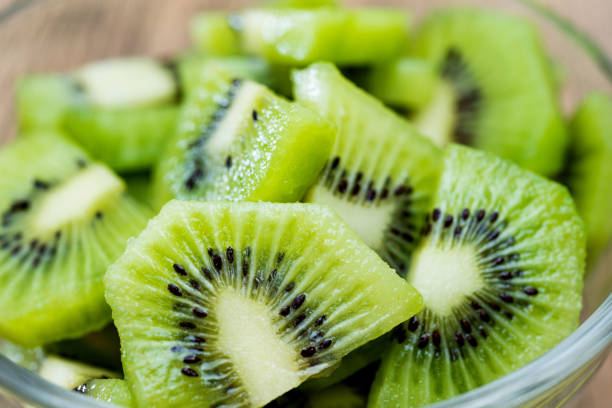
Kiwifruit 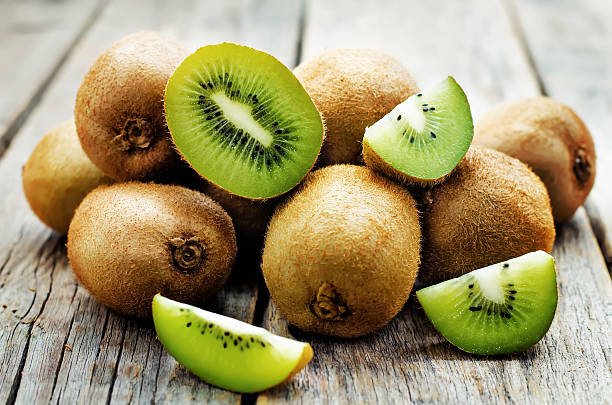
Kiwifruit -
For thousands of years, ginger has been used in culinary and traditional medicine. Ginger's digestive enzymes may be responsible for some of its outstanding health effects. Ginger includes the protease zingibain, which breaks down proteins into their constituent parts. Commercially, zingibain is used to produce ginger milk curd, a favorite Chinese delicacy. It is not commonly used to tenderize meats, unlike other proteases, due to its short shelf life. Indigestion is frequently assumed to be caused by food remaining in the stomach for an extended period of time.
Ginger promoted contractions in healthy people and those with dyspepsia, allowing food to flow quickly through the stomach. Spices, including ginger, have also been demonstrated in animal experiments to assist and stimulate the body's natural synthesis of digestive enzymes such as amylases and lipases. In addition, ginger appears to be an effective therapy for nausea and vomiting.
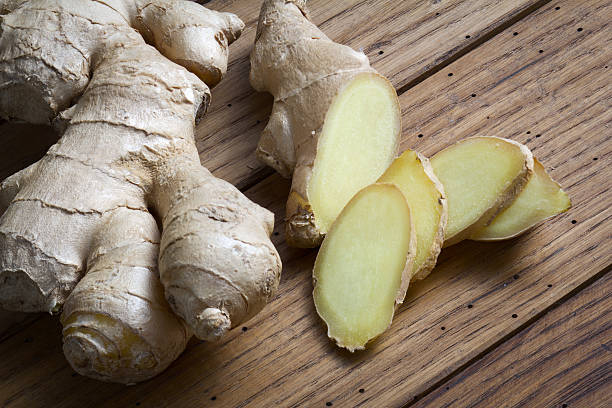
Ginger 
Ginger
















